This article was co-authored by wikiHow staff writer, Danielle Blinka, MA, MPA. Danielle Blinka is a Writer, Editor, Podcaster, Improv Performer, and Artist currently living in Houston, TX. She also has experience teaching English and writing to others. Danielle holds a Bachelor of Arts in English, Bachelor of Arts in Political Science, Master of Arts in English with a concentration in writing, and Master of Public Administration from Lamar University.
This article has been viewed 122,733 times.
Learn more...
Waking up on soaked sheets is upsetting and embarrassing, but wetting the bed when you’re drunk is very common. Since alcohol suppresses your antidiuretic hormone (ADH), which controls your urine production, your body may produce excess urine when you’re drunk. If you fall asleep too soon after drinking, your bladder can get too full, causing you to wet the bed. Additionally, you may have vivid dreams that make you think you’ve gone to the bathroom, tricking you into wetting the bed.[1] Fortunately, you can likely stop peeing the bed while you’re drunk if you change your habits.
Steps
Changing Your Drinking Habits
-
1Cut out caffeinated drinks when you’re drinking alcohol. Caffeine stimulates your bladder muscles and can cause you to urinate more often. While drinks like rum and Coke may be tasty, they could be at the root of your bed-wetting problem. Similarly, sipping on coffee or an energy drink may make you feel less drunk, but they could lead to you wetting the bed. Don’t drink any caffeinated beverages while you’re drinking alcohol.[2]
- Keep in mind that caffeine can stay in your body for up to 10 hours and about half of it will be in your system 6 hours after you drink.[3]
-
2Enjoy fewer drinks so your bladder won’t fill up as fast. Part of the reason you might be wetting the bed is that you’re consuming a lot of fluids. You may be enjoying several beers, shots, mixed drinks, or glasses of wine, as well as water between drinks. All of these liquids make you need to urinate. Cut down on how much you usually drink so you’re less likely to consume too much.[4]
- For instance, if you typically enjoy 3 drinks before you feel drunk, cut back to 1 or 2.
Tip: Never engage in binge drinking. Not only will it make you more likely to wet the bed, it’s also really harmful to your health. It’s best to stick to 1 drink a day if you’re a woman or a man who’s 65 or older or 2 drinks a day if you’re a man under the age of 65.[5]
Advertisement -
3Switch to water once you feel intoxicated so you won’t black out. Blacking out means you're so drunk that you have trouble remembering what you were doing. When you black out, your chances of wetting the bed increase dramatically because you’re less likely to get up and relieve yourself. To prevent a black out, stop drinking as soon as you feel intoxicated. Instead, sip on water to help you hydrate your body and avoid a blackout.
- If you get blackout drunk often, it’s possible you may have a problem with alcoholism. Talk to your doctor to find out if you may be drinking too much.
-
4Stop drinking 2-3 hours before bed so you have time to urinate. Once you’ve finished drinking, it can take a few hours for you to fully empty your bladder, as your body will keep making urine. Give yourself at least 2-3 hours to pass all of your urine before you go to bed after a night of drinking. This limits the risk of your bladder getting overly full while you’re sleeping.[6]
- For instance, if you typically go to bed at 10:00 p.m., have a drink or 2 with dinner but stop drinking by 8:00 p.m.
- If you don’t have a set bedtime, simply stay up an extra few hours after your last drink.
Emptying Your Bladder
-
1Urinate at both the beginning and end of your bedtime routine. You likely already pee before bed, but it’s possible your bladder isn’t totally empty after one bathroom visit. Instead, pee before you start getting ready for bed and again right before you climb into bed. This allows you to fall asleep with a completely empty bladder.[7]
- As an example, you might pee, wash your face, brush your teeth, put on your pajamas, and pee again.
-
2Set an alarm during the night so you can get up and urinate. After you’ve been drinking, it’s highly likely that your body will continue to produce a lot of urine after you go to bed. Getting up during the night to pee can help you limit your risk of wetting the bed. Since you’re less likely to wake up if you’re drunk, turning on your alarm may help you get up and pee. Set your alarm for 2-4 hours after you go to bed.[8]
- You may have to try different times to see what works for you. For instance, you might find that getting up about halfway through the night works best for you.
Tip: If you’re using this technique often, vary the time you set your alarm for so you don’t get used to waking up at this time to urinate. Otherwise, your body may continue to wake up in the middle of the night even when you didn’t set the alarm.[9]
-
3Wear protection until you find what works for you. It may take some trial and error to determine which changes help you stop peeing the bed. During this time, you may still have accidents sometimes. While this is frustrating, you don’t have to wake up to wet sheets. Use protective briefs or liners when you go to bed drunk until you feel sure you won't wet the bed.[10]
- If you want an easy option, use a protective liner that you can stick in your own underwear.
- For extra protection, look for disposable briefs or boxers that collect your urine.
Talking to Your Doctor
-
1Visit your doctor or therapist if you think you’re drinking too much. Wetting the bed while you’re drunk doesn’t mean you have a problem with alcohol, especially if it only happens occasionally. However, talk to your doctor if you’re wetting the bed often or are concerned about your drinking. They can help you figure out if you may need to cut back or get treatment for alcoholism.
- Don’t feel embarrassed about discussing bed-wetting with your doctor. It’s common to wet the bed when you’re drunk, and they’re used to discussing this type of issue.
-
2Ask your doctor if medication might increase your risk of bed-wetting. While your bed-wetting may be caused by drinking, some medications can increase your risk of wetting the bed after a few drinks. Talk to your doctor if you suspect you might be taking a medication that’s triggering bed-wetting while you’re drunk. You may be more likely to wet the bed if you’re taking the following medications:[11]
- Insomnia treatments
- Psychiatric medications like clozapine, thioridazine, or risperidone
- Hypnotics
Warning: Don’t stop taking any prescribed medication unless your doctor tells you to do so.
-
3See your doctor if bed-wetting may be caused by a medical condition. While you likely don’t need to worry, some medical conditions can make you more likely to wet the bed, especially when you’re drunk. If this is the case for you, you’ll likely need to treat your underlying condition to stop peeing the bed. Visit your doctor if any of the following apply to you:
- You’re wetting the bed on nights you don’t drink.
- You’re a man over the age of 65 who is suddenly wetting the bed after drinking.
- You have the symptoms of diabetes.
- You’re snoring and have disruptive sleep, which can be signs of sleep apnea.
Warnings
- In addition to making you wet the bed, excessive alcohol consumption is also harmful to your health. It’s best to limit yourself to 1-2 drinks per day and to avoid binge drinking.[12]⧼thumbs_response⧽
References
- ↑ https://health.clevelandclinic.org/adults-booze-bedwetting-heres-happens/
- ↑ https://health.clevelandclinic.org/adults-booze-bedwetting-heres-happens/
- ↑ https://my.clevelandclinic.org/health/articles/15496-caffeine-tips-for-breaking-the-habit
- ↑ https://health.clevelandclinic.org/adults-booze-bedwetting-heres-happens/
- ↑ https://www.mayoclinic.org/healthy-lifestyle/nutrition-and-healthy-eating/in-depth/alcohol/art-20044551
- ↑ https://health.clevelandclinic.org/adults-booze-bedwetting-heres-happens/
- ↑ https://www.mayoclinic.org/diseases-conditions/bed-wetting/diagnosis-treatment/drc-20366711
- ↑ https://health.clevelandclinic.org/adults-booze-bedwetting-heres-happens/
- ↑ https://www.nafc.org/adult-bedwetting
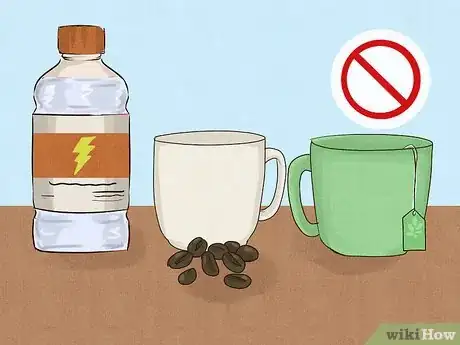
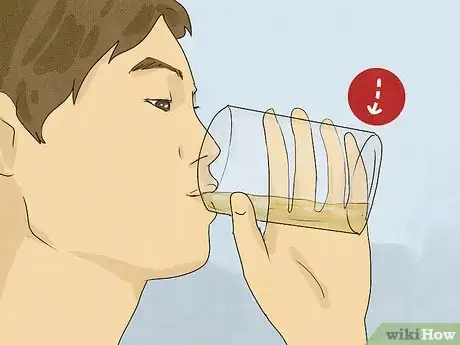
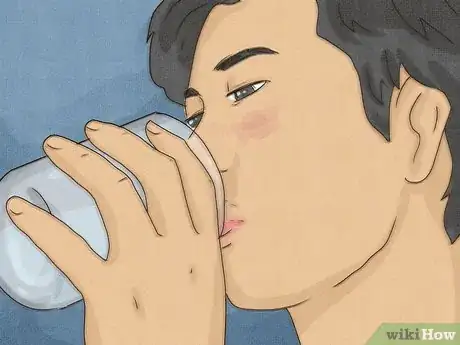
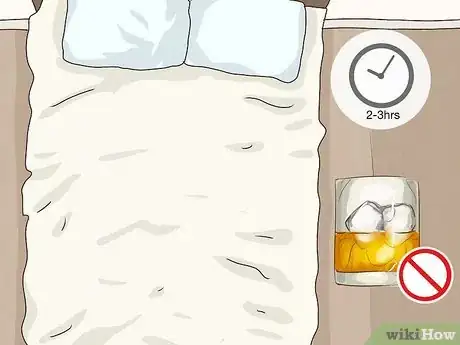
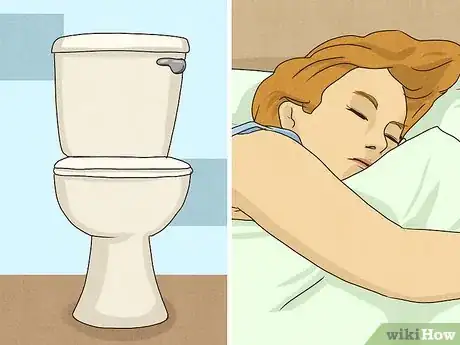
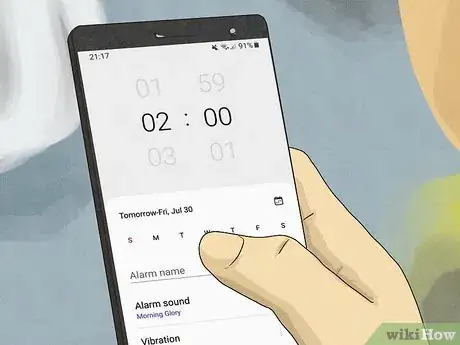
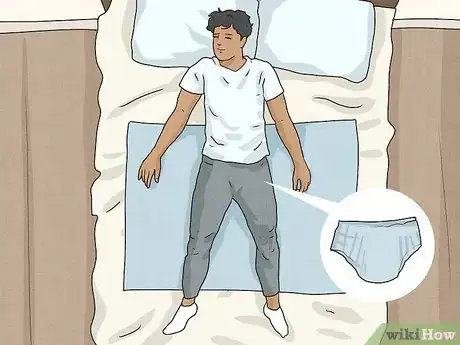
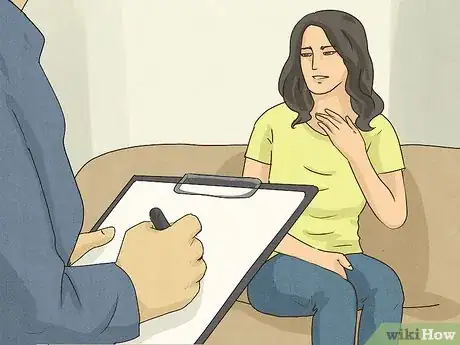
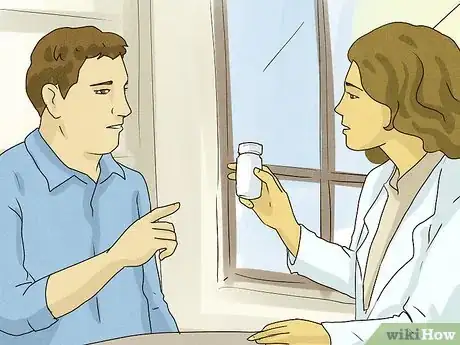
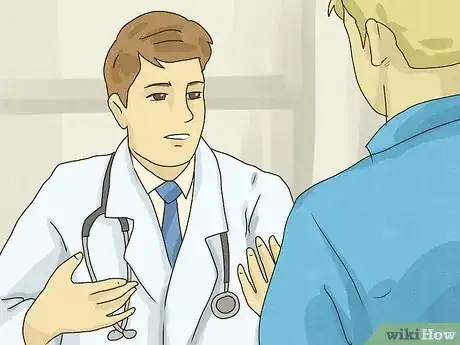
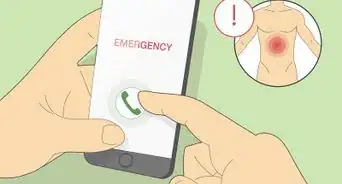
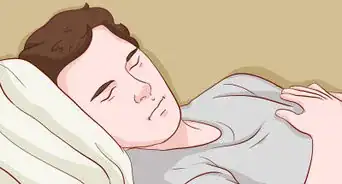

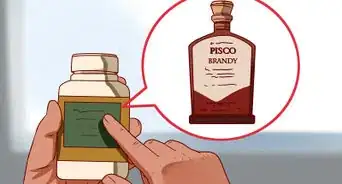
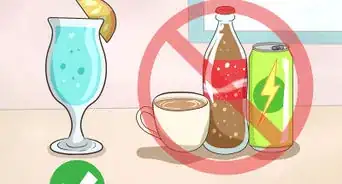
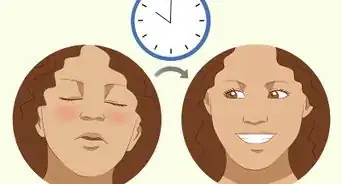


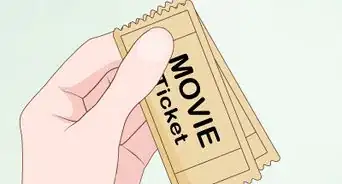

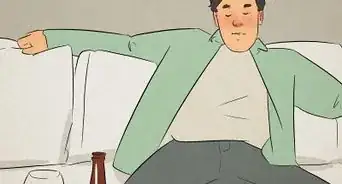
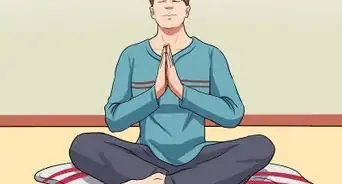









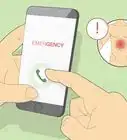
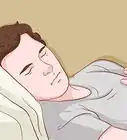

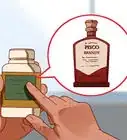



































Medical Disclaimer
The content of this article is not intended to be a substitute for professional medical advice, examination, diagnosis, or treatment. You should always contact your doctor or other qualified healthcare professional before starting, changing, or stopping any kind of health treatment.
Read More...